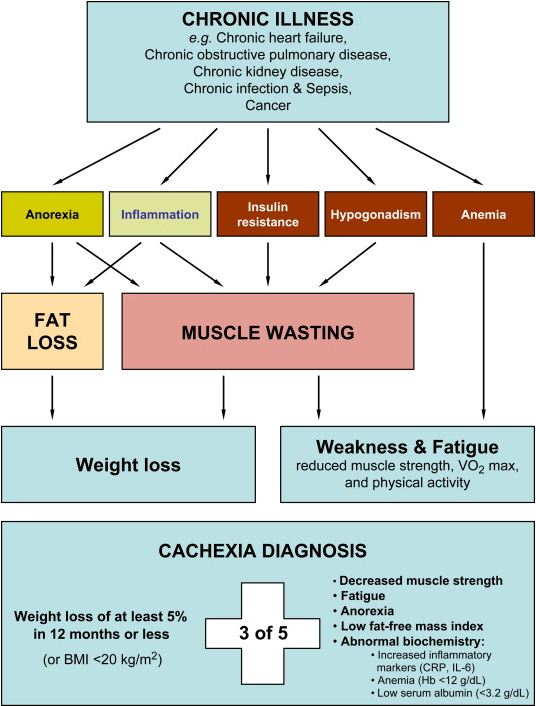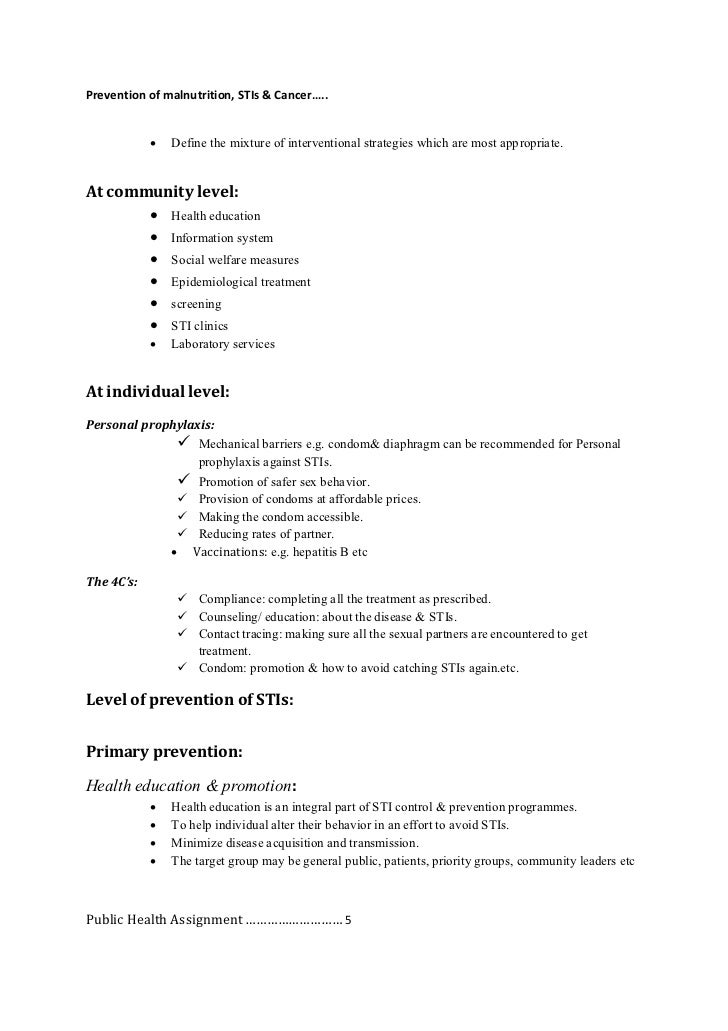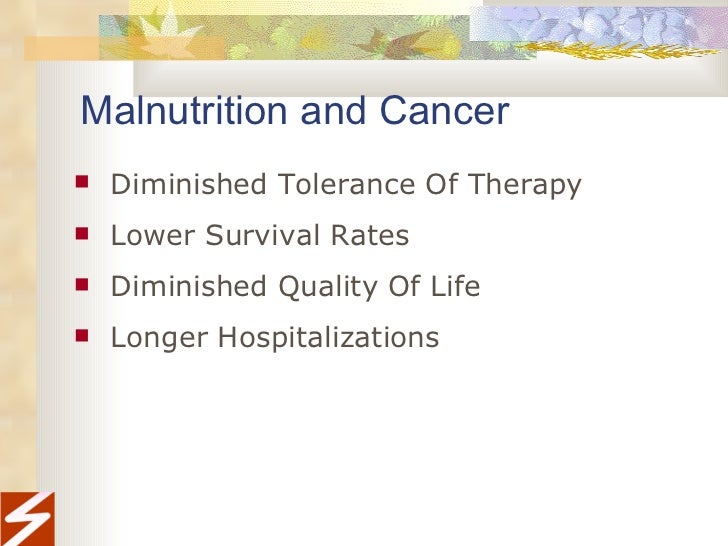Research Faculty of Pharmacy Science Portal
malnutrition in cancer patients treatment Research Faculty of Pharmacy Science Portal Malnutrition in Cancer Patients
Cancer is definitely an powerful disease, and yes it requires a potent treatment regimen to handle and hopefully eradicate the malignant cells. However, cancer treatment itself is extremely damaging to the body, and it can make a person very weak. Thus, it is important for cancer patients to address the malnutrition that usually comes as a consequence of treatment as a way to stay strong.


When consume, you consume the vitamins, minerals, proteins, carbohydrates, and also other products which your body needs for fuel. This supports your body's defence mechanism in addition to general health, which enables you to address the cancer. Frustratingly, though, just as someone needs this strength one of the most, the cancer and subsequent treatment might cause one to develop anorexia or cachexia.


One of essentially the most frequent signs of cancer is anorexia, or perhaps the complete loss in appetite. This can occur because body loses its ability smell or taste on account of cancer treatment, or it can happen as tumors grow and put pressure on digestive organs. Cachexia, alternatively, is really a wasting disease seen as lack of body weight. Normally, your system will be able to accommodate starvation or anorexia by reducing its metabolism. However, with cachexia, your metabolism is not able to adjust, which forces one's body to use its own fat and muscle. Cachexia usually occurs with lung and digestive cancers.

Frustratingly, both anorexia and cachexia can cause malnutrition as your system no longer provides the nutrients who's must withstand cancer and cancer treatment. Malnutrition could make you more susceptible to infections, and the treatment itself could become too risky for your system. You may also feel fatigued and weak, which decreases your skill to address your cancer.
To help prevent malnutrition, many cancer hospitals also include nutritional counseling and therapy. This can coach you on ways to get probably the most nutrients out from the food that you are able to take.
If you have been clinically determined to have mesothelioma, you will need additional support in managing and dealing with the side effects of devastating disease, including cachexia and anorexia. To learn more about mesothelioma, kindly visit the Mesothelioma Resource Center today.



One of essentially the most frequent signs of cancer is anorexia, or perhaps the complete loss in appetite. This can occur because body loses its ability smell or taste on account of cancer treatment, or it can happen as tumors grow and put pressure on digestive organs. Cachexia, alternatively, is really a wasting disease seen as lack of body weight. Normally, your system will be able to accommodate starvation or anorexia by reducing its metabolism. However, with cachexia, your metabolism is not able to adjust, which forces one's body to use its own fat and muscle. Cachexia usually occurs with lung and digestive cancers.
Frustratingly, both anorexia and cachexia can cause malnutrition as your system no longer provides the nutrients who's must withstand cancer and cancer treatment. Malnutrition could make you more susceptible to infections, and the treatment itself could become too risky for your system. You may also feel fatigued and weak, which decreases your skill to address your cancer.
To help prevent malnutrition, many cancer hospitals also include nutritional counseling and therapy. This can coach you on ways to get probably the most nutrients out from the food that you are able to take.
If you have been clinically determined to have mesothelioma, you will need additional support in managing and dealing with the side effects of devastating disease, including cachexia and anorexia. To learn more about mesothelioma, kindly visit the Mesothelioma Resource Center today.
0 Response to "Research Faculty of Pharmacy Science Portal"
Post a Comment